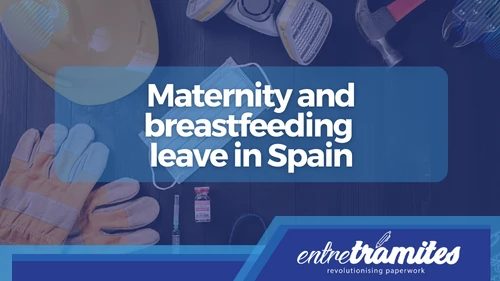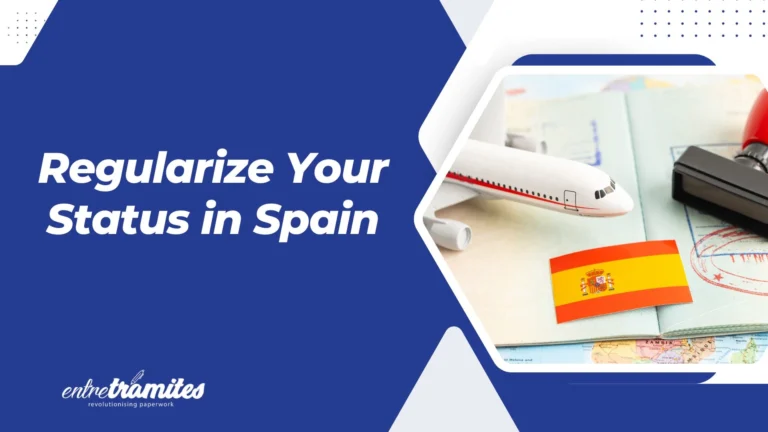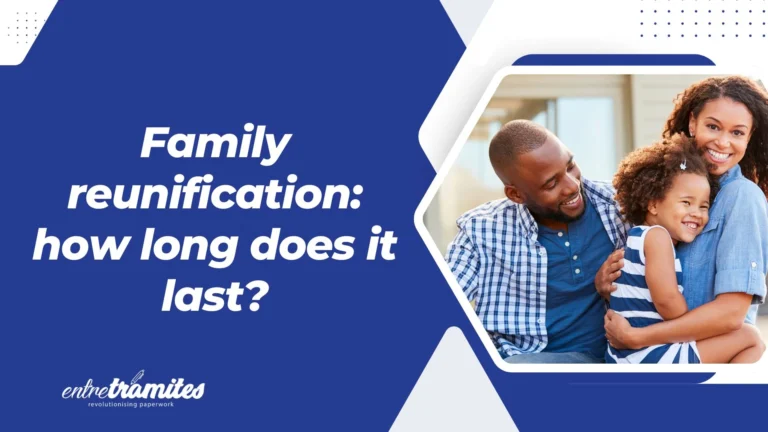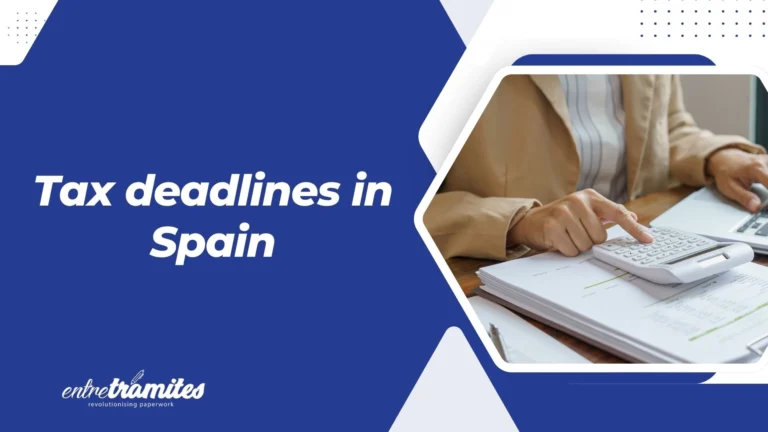In Spain, great efforts are made to protect the female employees who have had a child or who are a few weeks away from being parents. This is why maternity leave and breastfeeding breaks are a right to which all mothers must have access.
This being the case, you cannot be fired from your company for reasons of pregnancy; and you will receive your maternity and breastfeeding leave benefit after having your child, with all that this entails. It is important that you notify the company of your situation as soon as possible.
This maternity and breastfeeding leave is not paid by the company but by the government, so it will not generate additional efforts for the company. Thus you should not hesitate to inform your employers.
Maternity and breastfeeding leave is a public assistance benefit of economic nature and of a determined duration, which compensates the income that the worker loses when ceasing her activity due to the birth of a child, adoption, guardianship, or foster care.
Now, let’s review how exactly maternity leave and breastfeeding breaks work in the Spanish territory for both mothers and fathers.
Types of Permits
Sick leave (before delivery)
Depending on your job and your company, this type of leave will be granted days, weeks or even a few months before giving birth.
This permit depends on the risk of the pregnancy and other factors and covers those cases in which the mother experiences additional health effects due to her state of pregnancy.
The duration of this type of leave is something that must be paid by the company, and the compensation will be equal to 12 days per year worked in the company.
Maternity and Breastfeeding Leave (after childbirth)
This maternity and breastfeeding leave is applied from the moment the baby is born (or according to a medical concept, it could start 10 weeks before).
The mother must change her current employment contract for an interim one, which lasts the same time as the leave.
This special type of contract does not offer any compensation. In this case, it will be Social Security that pays, and not the company.
Also, keep in mind that maternity leave also applies when you have adopted a child. In this case, it would last exactly the same time, but the only difference is that the judicial decision to grant the adoption will be the day your leave begins. However, it only applies in these cases:
- If the child is under 6 years of age.
- If the child is under 18 years of age but has some type of disability.
How much time of Maternity and Breastfeeding Leave am I entitled to in Spain?
Interim contracts can last a maximum of 4 months (16 weeks) but could be extended in certain circumstances.
During that period of time, Social Security will be the institution in charge of paying you.
In addition, there is the possibility of further extending your maternity and breastfeeding leave, by virtue of what is called leave of absence without pay.
This procedure gives you the option of taking care of your child for 3 years without returning to your job, but with the disadvantage of not receiving any type of payment.
But what is the positive side of this practice? That the company must keep your job for 1 year, and during the following 2 years, it must offer you a similar one if you decide to return.
Requirements to obtain the Maternity and Breastfeeding Leave
In order to get paid during the maternity leave period, you must make sure you meet the following requirements:
- You must be working in a company, or as a freelancer.
- If you are under 21 years of age, you will not be required to have contributed to Social Security before.
- If you are between 21 and 26 years old, you must have contributed to Social Security for at least 90 days during the last 7 years, or 180 days during your entire working life.
- If you are over 26 years old, 180 days during the last 7 years or at least 360 days during your working life.
To find out if you meet these requirements, you must request your Work History Report from Social Security.
If you do not meet the requirements, you can continue to obtain maternity and breastfeeding leave and get paid during those 16 weeks. Under certain conditions, you would get a non-contributory benefit, which would pay you approximately 530 euros per month.
What to do when the requirements for Maternity and Breastfeeding Leave are not met?
When the mother does not meet the contribution requirements to receive the benefit for maternity and breastfeeding leave, she can take advantage of the non-contributory maternity benefit. This economic aid is only granted in the case of birth, not for adoptions or foster care.
Duration of the Non-contributory Maternity Benefit
The duration of the non-contributory maternity benefit is different from that of the maternity and breastfeeding leave, only 42 calendar days after giving birth. It can be increased by 14 more days in these cases:
- If it is a large family
- When the birth of the child occurs in a single-parent family. That is a family in which the mother is the only source of income.
- Multiple birth cases.
- If the baby or their mother has a minimum disability of 65%.
How much is received for the Non-contributory Maternity Benefit?
The amount to be collected for the non-contributory maternity benefit is 17.93 euros per day, according to the Public Multiple-Effects Income Indicator (IPREM), which is the one taken as a reference for this type of aid. We are talking about €537.84 per month as birth aid, during the 42 days off for maternity leave.
How to request Maternity and Breastfeeding Leave?
The maternity benefit is processed as follows:
- Duration: it can be requested from the day after the day you start your maternity leave period. Keep in mind that the right to request the benefit prescribes after five years.
- Institution: you must submit your application to the National Institute of Social Security (INSS), which is the competent entity to process it and who pays the benefit.
- Documentation: you only need to submit the duly completed application form, DNI, NIE, passport, or Family Book. You must submit additional documentation in cases of adoption, of transferring part of the rest period to the father, or of starting the rest period before delivery.
- Term for resolution: maximum 30 days from the submission of the application.
- When is the benefit collected? Typically, the INSS makes the deposit on the last business day of each month, so you will receive it in the following days.
How much is received for Maternity and Breastfeeding Leave?
If you work in a company, to find out how much you are going to earn during those 4 months, you have to look at the payroll corresponding to the month prior to your maternity leave.
At the bottom of the document, you will see a box that says <<contribution base for common contingencies>>. That is the exact amount that you will receive during the withdrawal period.
If you see that during the weeks of maternity and breastfeeding leave you earn more than usual, it is because your salary is prorated, which means that it includes extra payments and Christmas extras, for example.
If when you get pregnant you are receiving an unemployment benefit (since you are unemployed), your maternity leave implies a change in your source of income.
Social Security would then take care of your monthly salary, and you would not lose the unemployment benefit (if you have a month left) during that period; it would be maintained until the end of those 16 weeks.
What happens with Maternity and Breastfeeding Leave if I am self-employed?
The self-employed or freelancers in Spain are also protected by law and will receive a benefit, although conditions are different.
First of all, for two years the mother of the newborn does not have to contribute to Social Security, which allows her to save about 280 euros per month.
In addition, she can decide to collect 100 euros a month for 3 years or enjoy a deduction in Personal Income Tax (IRPF) of 1,200 euros for each child during those same years.
Breastfeeding breaks
Once you return to your job after maternity leave, you are entitled to 1 free hour a day during the first 9 months to breastfeed your child.
However, many people do not use those hours and accumulate them until they reach a total of 15 days of breastfeeding, time that they can spend at home with their children.
Paternity leave
Currently, this specific leave period has been extended to the same 16 weeks that mothers enjoy.
100% of the regulatory salary base will be received by the father during that period of time, and as is the case with maternity leave, this income is exempt from Personal Income Tax (IRPF).
Let’s talk!
We want to listen to you and know what your questions are about the procedures you have to carry out. Count on the advice of our experts to clarify all your doubts.
In Entre Trámites we invite you to know about all our consultation services. Fill in our contact form and we will call you to help you as soon as possible, schedule a free online consultation, or simply text our WhatsApp.





